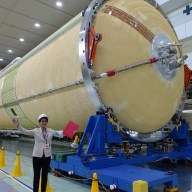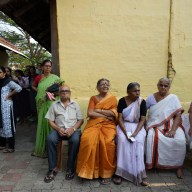Zalmai Rassoul has the demeanor of a veteran physician — indeed, he’s one. Rassoul’s calm nature serves him well in what may be the world’s hardest foreign minister post. Ten years after the invasion of Afghanistan, he deals with countries eager to get their soldiers back — and he has to convince them that Afghanistan’s own forces are improving, while at asking for more help. Rassoul met Metro in Paris.
According to a new survey, 37 percent of Afghan women think Afghanistan will become a worse place when international troops leave. Will it?
It has been 10 years. It’s simply time that Afghan security forces take over. By the end of 2014, or even before, we’ll be in charge. Of course, that doesn’t mean that the international community will abandon Afghanistan. Our security forces till still need training by foreign troops as well as equipment.
If a U.S. soldier asked you why he should risk his life for Afghans, what would you say?
The arrival for international forces was decided by the UN Security Council, not by Afghanistan. But what we have today in Afghanistan, we have thanks to these soldiers’ presence. And the international forces have defeated the Taliban in Afghanistan. There are still Taliban outside Afghanistan, but in Afghanistan they’ve been defeated. And the soldiers have contributed to the security of their own countries. No country that has soldiers in Afghanistan would have been free of the risk of being attacked. We’re full of gratitude that the soldiers have risked and sometimes sacrificed their lives for us. But they’ve also done so to protect their own countries. Afghanistan is no longer a source of terrorism.
Maybe Afghans will be better off without foreign soldiers?
This is the first time in the history of Afghanistan that foreign soldiers have been welcomed. But now that 10 years have passed, of course Afghans want to see their own soldiers taking care of their security.
Is the Afghan National Army up to the task? According to a UN report, 90 percent of its soldiers are illiterate; 30 percent are drug addicts.
We have some drug addicts in the ANA, but not 30 percent. Illiteracy remains a problem because two generations of Afghans couldn’t go to school. But now we have a very intensive literacy program for new soldiers, and the percentage of literate soldiers is increasing every month.
A tougher challenge is the police force, with police officers helping or joining the Taliban.
Yes, we have many problems with the police force. We started training them very late, and being a police officer is much more difficult than being a soldier because he’s dealing with the population. He needs to be literate; he needs to know the law. The Taliban are not recruiting police officers. There has been some infiltration of the police by the Taliban, but the majority of police officers don’t help them. Every day we lose five to 10 police officers in the fight against the Taliban.
What is Afghanistan’s foremost success post-2001?
Democracy. We have a constitution and free elections. Twenty-six percent of our MP’s are women. We have the freest press in the region.
Ten years of war, what next?
To date, the wars in Afghanistan and Iraq have resulted in 236,000 deaths and a cost of $3 trillion to $4 trillion, according to Brown University’s Costs of War project. 2010 was the bloodiest year for the military since the Afghan war began.
Forty-eight countries, from Tonga to Norway, participate in the International Security Assistance Force.
With withdrawal of combat forces from Iraq completed, the international alliance has begun withdrawing soldiers from Afghanistan. This summer the first province — Bamiyan — was handed over to the Afghan National Army.
















